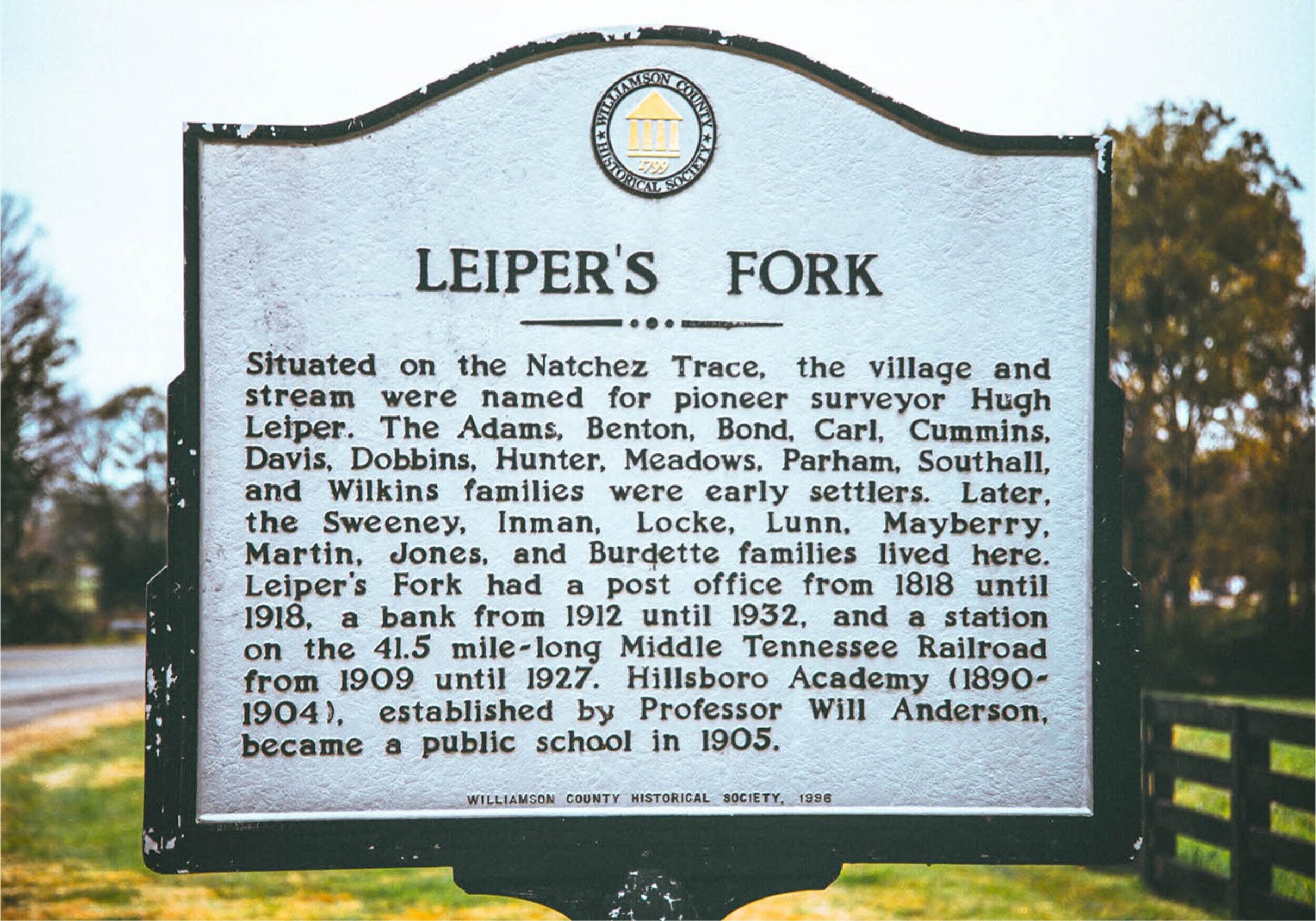LEIPER’S FORK, TENNESSEE
People just end up here
About Leiper’s Fork
Leiper’s Fork is an unincorporated rural village located 15 minutes from downtown Franklin in Williamson County, Tennessee. As one of the only towns located directly on the historic Natchez Trace Parkway, the village has been named to the National Register of Historical Places. Roughly an hour south of Nashville, this creative and rustic village has become a favorite spot for locals and tourists alike.
Between the strong community and creative energy, the Tennessee landscapes and Southern charm, Leiper’s Fork blends the quaintness of the past with world class conveniences of the present. Here you’ll find friendly merchants, unparalleled country cooking, and all-star entertainment — all within a few square miles.
Click here to read more about Leiper’s Fork, in a 2020 Vie Magazine article called “A Fork in the Road”.
Click here to read more about our gallery and Leiper’s Fork: featured in a Travel and Leisure 2022 article for being a “charming town in Tennessee” to visit.
It’s no wonder why people just end up here.

A Brief History
Deeply sown with Native American heritage, the area of Leiper’s Fork has been inhabited by people for thousands of years. Due to its rich and fertile soil, abundant hunting opportunity, and plentiful supply of fresh water, this land first served as a home for tribes now known as the Cherokee, Chickasaw, Creek and Shawnee.
Following the Revolutionary War in the 1790’s however, veterans began to acquire land in the area via grants they received in exchange for their services. Colonel Jesse Steed acquired 2,504 acres of land — the very land on which Leiper’s Fork now sits — which was later purchased by another man named Jesse, with the surname Benton. Due to an untimely death, Benton never lived on his idyllic property, but his family moved there anyway. His widow Nancy decided to call it Benton Town.
Located directly on The Natchez Trace Parkway — once a Native American travel corridor that had since evolved into a major thoroughfare for 18th century travelers — newcomers began to arrive in Benton Town and the family started leasing portions of their land to help them settle. Soon, a small community grew.
Eventually, Nancy chose to rename the village Hillsboro, in honor of her home in Hillsborough, North Carolina. In 1808 the village was granted a US post office, due to the community’s growth and their location on the National Road from Natchez to Nashville — but there was a problem. A Hillsboro, Tennessee had already been established in nearby Coffee County. The name of the village was changed once more, this time honoring the Leiper family who settled much of the land along the creek. Leiper’s Fork was prosperous for the first three decades of the 20th century, becoming a booming little village filled with shops, schools, farms and mills.
Years later, in 1995, a group of concerned citizens began working to restore the village and preserve its scenic 19th century architecture and rolling farmland. Faced with the threat of rapidly encroaching suburban development within Williamson County, community leaders created a plan for preservation. Since then, Leiper’s Fork has transformed into a unique community of farmers, artists and musicians who appreciate its leisurely pace and peaceful countryside scenery.



